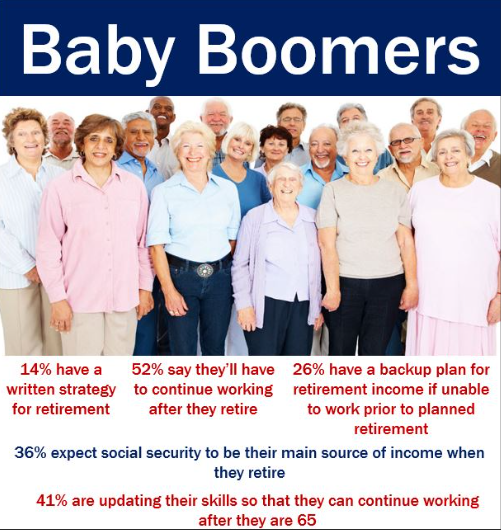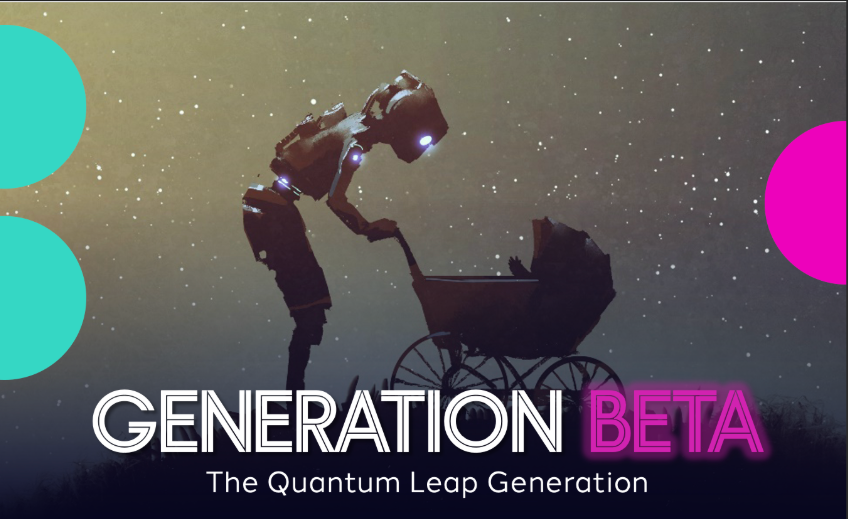This article addresses how each generation in America identifies with a shared experience including the Silent Generation, Baby Boomers, Gen X, Millennials, Gen Z, Gen Alpha, and Gen Beta.
The Silent Generationrefers to people born approximately between 1928 and 1945. Here are some key characteristics and contexts for this generation. They were born during the Great Depression and World War II, which significantly impacted their formative years They came of age during the post-war boom, experiencing Often characterized by a strong sense of traditional values, respect for authority, and work ethics. Known for their tendency to conform to societal norms and maintain disciplined lifestyles. Valued loyalty to employers and were generally frugal, influenced by the scarcity they experienced growing up. Contributed significantly to the development of music and entertainment, with the rise of rock ‘n’ roll and Hollywood’s Golden Age Witnessed and participated in major social changes, including the Civil Rights Movement and the beginning of the Women’s Liberation Movement. They experienced a job market that valued long-term employment and job security. Often prioritized home ownership and retirement savings, influenced by economic stability in their prime working years.

We were that generation called silent, but we were silent neither, as some thought, because we shared the period’s official optimism, nor as others thought, because we feared its official repression.
Joan Didion
The Silent Generation played a pivotal role in shaping the mid-20th century and left a lasting legacy through their contributions to culture, economy, and society. Their experiences and values continue to influence subsequent generations.

The Silent Generation, known for their strong work ethic, traditional values, and respect for stability, often hold a nuanced perspective on retirement. Here’s a general overview of their views: Many in the Silent Generation grew up during challenging economic times, which instilled a deep respect for hard work and dedication. While they appreciate the idea of relaxation and leisure in retirement, they also sometimes miss the structure and sense of purpose that work provides.

Having lived through the Great Depression and World War II, they emphasize the importance of financial stability and saving for retirement. Many benefited from robust pension plans and social security, valuing the financial security these provided in retirement. They are generally aware of the health challenges that come with aging and often value retirement as a time to focus on personal well-being. Many prioritize staying active and engaged in retirement, whether through hobbies, volunteer work, or part-time employment. The Silent Generation often values the role of family in providing support during retirement years, emphasizing intergenerational relationships. They frequently engage in community activities and volunteer work, finding fulfillment in giving back to society.

Their traditional views may influence their perspective on retirement, appreciating the time for relaxation and reflection after years of hard work. They may also recognize and adapt to changing societal norms around retirement, seeing newer generations approach retirement differently. Overall, the Silent Generation values the balance between enjoying the fruits of their labor and staying active and engaged in their communities. Their experiences and values shape a distinctive approach to retirement, emphasizing financial security, health, and family connections.

The term “Silent Majority” typically refers to the large group of people who do not express their opinions publicly. However, if we focus on what the Silent Generation appreciates about retirees, here are a few key points; They highly value the wisdom and life experience that retirees bring. They often respect the lessons learned over a lifetime and the ability to share their knowledge with younger generations. Retirees play a vital role in family dynamics, such as being involved in their grandchildren’s lives, providing stability, and fostering family traditions.
Many retirees are active in their communities, volunteering their time and expertise. This contribution is greatly appreciated as it helps strengthen community bonds and support local causes. Seeing retirees enjoy their well-earned leisure time, pursuing hobbies, traveling, and engaging in activities they love, can be inspiring and encouraging for others, showing the positive aspects of life after work.
Many retirees prioritize their health and well-being, setting a positive example for others about the importance of staying active and taking care of oneself at any age. The Silent Generation appreciates retirees who have planned carefully for their financial future, emphasizing the value of saving and preparing for retirement.
Overall, the Silent Generation respects the experiences, contributions, and positive lifestyle choices of retirees, recognizing the important roles they play in families, communities, and society at large.

BABY BOOMERS

Baby Boomers are individuals born approximately between 1946 and 1964. This generation is named after the significant increase in birth rates following World War II, a period often referred to as the “baby boom.” Here are some key characteristics and contexts for Baby Boomers. Grew up during a time of economic prosperity and expansion in the post-World War II era. Witnessed significant cultural and social changes, including the Civil Rights Movement, the counterculture of the 1960s, and the feminist movement. Lived through the tensions of the Cold War and events such as the Cuban Missile Crisis and the Vietnam War.

Values and Characteristics Known for a strong work ethic, valued hard work, and dedication to their careers. Generally, characterized by optimism and confidence in their ability to influence and shape their future. They played a significant role in the rise of consumerism, driving demand for goods and services. They benefited from and contributed to substantial economic growth and technological advancement during their prime working years. Many Baby Boomers prioritized home ownership and achieved high rates of home ownership compared to other generations.

“We are the first generation to feel the impact of technology on a mass scale and adapt to its integration into our lives.“
Douglas Coupland
Experienced the transition from analog to digital technology and have adapted to the rapid technological changes over their lifetime. As they age, Baby Boomers are reaching retirement age, impacting pensions, healthcare systems, and the economy. Many Baby Boomers are pursuing active and engaged lifestyles in retirement, including traveling, volunteering, and starting new careers or hobbies. Played a pivotal role in shaping modern culture, including music, fashion, and social norms. This age group has been influential in political and social movements, advocating for change and progress.

Baby Boomers have had a profound impact on society, economy, and culture. Their experiences and contributions continue to influence many aspects of modern life. Boomers, having navigated their own journeys through work and retirement, often have unique and diverse perspectives on retirement. Many Baby Boomers view retirement as a well-deserved phase to enjoy life, pursue hobbies, travel, and spend time with family and friends. They often appreciate the freedom and flexibility that retirement offers. Having experienced the transition to retirement themselves, Baby Boomers typically emphasize the importance of financial planning, savings, and investments to ensure a comfortable and secure retirement. Many Baby Boomers prioritize maintaining an active lifestyle in retirement. They understand the importance of staying physically and mentally healthy through exercise, social activities, and continuous learning. Many retirees from the Baby Boomer generation continue to contribute to their communities through volunteer work, mentorship, or part-time employment. They value staying engaged and making a positive impact. Baby Boomers recognize that retirement is a significant life transition that requires adaptation. They often share insights and advice on how to navigate the emotional and practical aspects of this change. Baby Boomers may compare their retirement experiences with those of previous and subsequent generations, noting differences in financial stability, health care, and societal expectations.

Baby Boomers have a nuanced view of retirement, shaped by their own experiences and the changing socio-economic landscape. They value the opportunities retirement brings for personal fulfillment, health, and continued contribution to society.
Baby Boomers, having navigated their own journeys through work and retirement, often have unique and diverse perspectives on retirement. Here are some common sentiments; Many Baby Boomers view retirement as a well-deserved phase to enjoy life, pursue hobbies, travel, and spend time with family and friends. They often appreciate the freedom and flexibility that retirement offers. Having experienced the transition to retirement themselves, Baby Boomers typically emphasize the importance of financial planning, savings, and investments to ensure a comfortable and secure retirement. Many Baby Boomers prioritize maintaining an active lifestyle in retirement. They understand the importance of staying physically and mentally healthy through exercise, social activities, and continuous learning. Many retirees from the Baby Boomer generation continue to contribute to their communities through volunteer work, mentorship, or part-time employment. They value staying engaged and making a positive impact. Baby Boomers recognize that retirement is a significant life transition that requires adaptation. They often share insights and advice on how to navigate the emotional and practical aspects of this change. Baby Boomers may compare their retirement experiences with those of previous and subsequent generations, noting differences in financial stability, health care, and societal expectations.

Overall, Baby Boomers have a nuanced view of retirement, shaped by their own experiences and the changing socio-economic landscape. They value the opportunities retirement brings for personal fulfillment, health, and continued contribution to society.
GENERATION X
Generation refers to individuals born approximately between 1965 and 1980. This generation follows the Baby Boomers and precedes the Millennials. Here are some key characteristics and contexts for Generation X. Grew up during a period of significant social and economic changes, including the end of the Vietnam War and the Cold War tensions.

Witnessed the transition from analog to digital technology, including the advent of personal computers and the early internet. Known for their independence and self-reliance, often referred to as the “latchkey kids” due to a high number of dual-income households and increased divorce rates during their upbringing.

“Sometimes you have to go through experiences and hardships to really come out the other side and be the person that you are supposed to be.“
Gwen Stefani
Often characterized by a certain degree of skepticism and pragmatism, shaped by witnessing economic recessions and political scandals. Value work-life balance and tend to prioritize flexibility and autonomy in their careers. Influenced by iconic cultural movements and media, including the rise of punk rock, grunge music, and the golden age of MTV. Known for a diverse media consumption, embracing movies, television, music, and video games. Played a crucial role in the early adoption and development of digital technologies, bridging the gap between analog and digital eras.
Entered the workforce during the rise of the tech industry, contributing to significant technological advancements and the growth of the digital economy. Focused on financial independence and stability, often being cautious with investments and savings. Many Generation X individuals are parents who value a balance between independence and involvement in their children’s lives. Tend to be involved in community activities and value strong social networks. Generation X has significantly influenced modern culture, technology, and workplace dynamics. Their adaptability and pragmatic approach continue to shape various aspects of society.

Millennials, also known as Generation Y, are individuals born approximately between 1981 and 1996, though the exact range can vary slightly depending on the source. This generation follows Generation X and precedes Generation Z. Here are some key characteristics and context about Millennials. Millennials grew up during the rise of the internet, social media, and mobile technology, making them highly proficient with digital tools and platforms. They are quick to adopt new technologies and are often early adopters of emerging trends. Millennials are one of the most educated generations, with many pursuing higher education degrees. They entered the workforce during economic downturns, such as the Great Recession, leading to challenges like high student debt and job instability.

“Be yourself, that’s it. The magic is that you actually care and love what you’re doing. Everything else will fall into place.“
Bruno Mars
Millennials value work-life balance and often seek flexible working arrangements. They tend to prioritize jobs that provide a sense of purpose and align with their personal values. Millennials advocate for diversity, equity, and inclusion in the workplace and society. This generation is particularly aware of and concerned about environmental issues and climate change. Millennials are active in social justice movements and advocate for various social causes. Their spending habits differ from previous generations, with a focus on experiences over material possessions.

Millennials have influenced markets and industries, driving trends in technology, entertainment, and lifestyle products. Generation X tends to view retirees with a mix of respect, admiration, and concern, recognizing the contributions and challenges of this life stage. Their own experiences and aspirations for the future shape how they perceive and interact with retirees.
Millennials have played a significant role in shaping modern culture, technology, and societal values. Their adaptability and emphasis on meaningful work and social causes continue to influence various aspects of society. What aspect of Millennials are you most interested in learning more about?
Generation X tends to view retirees with a mix of respect, admiration, and concern, recognizing the contributions and challenges of this life stage. Their own experiences and aspirations for the future shape how they perceive and interact with retirees.
GENERATION Z
Generation Z, also known as Gen Z or Zoomers, refers to individuals born approximately between 1997 and 2012. This generation follows the Millennials and precedes Generation Alpha. Here are some key characteristics and contexts for Generation Z. Gen Z has grown up with the internet, social media, and smartphones, making them highly proficient with digital technology.

They are deeply connected to the online world, often engaging with platforms like Instagram, TikTok, and YouTube. Many Gen Z individuals place a high value on education and are driven to achieve academic success.

“Social media is not real life.“
Billie Eilish
Gen Z tends to value career flexibility and are more likely to pursue freelance or entrepreneurial opportunities. Gen Z places a strong emphasis on diversity, equity, and inclusion, advocating for social justice and equality. They are highly conscious of environmental issues and are active in promoting sustainability and climate action. refers digital communication methods, such as texting and social media, over traditional forms like phone calls. More connected to peers globally, fostering a sense of global citizenship and cultural awareness.

Gen Z is brand-savvy and values authenticity and ethical practices from the companies they support. Often prioritize experiences over material possessions, influencing markets and industries. They are more open about discussing mental health issues and advocating for mental health awareness and support. Despite being well-connected, they face higher levels of stress and anxiety, often due to academic pressures and social media influences.

Generation Z is shaping the future with its unique blend of technological proficiency, social consciousness, and innovative mindset. Their influence spans various aspects of society, from consumer behavior to cultural norms.
GENERATION ALPHA
Generation Alpha refers to individuals born approximately from 2013 to the mid-2020s. This generation follows Generation Z and is the first to be born entirely in the 21st century. Here are some key characteristics and contexts for Generation Alpha. Generation Alpha is growing up in a world where digital technology is ubiquitous, with early exposure to tablets, smartphones, and smart devices. They are likely to interact with AI and automated systems from a young age, influencing their understanding and expectations of technology.

Their education is increasingly supported by educational technology, including online learning platforms and digital classrooms. They benefit from personalized learning experiences tailored to their individual needs and learning styles.
Growing up in an era of heightened environmental awareness, they are likely to be conscious of sustainability and climate change issues. hey are being raised in a diverse and inclusive world, likely shaping their values around equality and social justice. Many Generation Alpha children are being raised in smaller family units, often with older parents compared to previous generations. Their parents, mostly Millennials, are tech-savvy and likely to emphasize the importance of technology and education. Parents are more informed about health and wellness, which can positively influence them. Generation Alpha prioritizes balancing screen time with physical activities is a growing concern for their development. They will enter a job market shaped by ongoing technological advancements, with new career opportunities emerging in fields like AI, robotics, and sustainability. Generation Alpha is expected to be highly globally connected, with a more integrated and cross-cultural perspective. Generation Alpha is poised to navigate a rapidly changing world with a strong foundation in technology, education, and social awareness. Their upbringing will shape their approach to challenges and opportunities in the future.
Since Generation Alpha is still quite young, there aren’t many widely recognized famous quotes from individuals in this generation yet. However, here’s a quote from Margo Georgiadis, a notable figure who has spoken about Generation Alpha.

“Generation Alpha has very different expectations for the entire world. Everything that’s going to happen in their lives needs to be visual, on demand, adaptive, and in demand, and we have to find a way to embed that into our toy experiences.“
Margo Georgiadis
Generation Alpha, currently the youngest generation, is still developing their perspectives and understanding of various aspects of life, including retirement. However, based on their upbringing and the influences around them, we can speculate on some potential viewpoints they might have about retirees. Growing up with advanced technology, Generation Alpha might be more connected with tech-savvy retirees who embrace digital tools and platforms. They may appreciate retirees who stay engaged through social media and other digital means, making it easier to maintain intergenerational connections. Generation Alpha likely values the time spent with retired family members, who often have more availability to engage with them, share stories, and provide guidance.

They may appreciate the wisdom and experiences that retirees bring, learning important life lessons and family histories. Seeing retirees who pursue active and fulfilling lives can be inspiring for Generation Alpha, demonstrating the importance of lifelong learning and staying active. They might admire retirees who contribute to their communities through volunteering and mentorship, reinforcing values of social responsibility. With a strong focus on environmental issues, Generation Alpha may look up to retirees who advocate for sustainability and eco-friendly practices. They might respect retirees who have participated in social justice movements and continue to support causes that align with Generation Alpha’s values. Generation Alpha could develop a positive view of aging, seeing it as a stage of life filled with opportunities for new experiences and continued growth. They might be more conscious of the importance of health and wellness for retirees, understanding the need for a balanced lifestyle. Although Generation Alpha is still young, their interactions with and observations of retirees will shape their perceptions. They appreciate retirees who stay engaged, active, and connected, serving as role models for living a fulfilling life at any age. And that’s how shared generational experiences work. Identifying with a generation becomes a shorthand for references to shared common cultural experiences, advances in technology, and behaviors forged by witnessing collective significant historical events. Generational identity also informs policy-making, particularly around marketing, health care, and retirement.

Another example of a generational cultural touchstone is the way we consume music. From the early days of vinyl records and radio to cassettes and CDs to streaming services and social media platforms, music listening formats are nearly baked into each generation’s formative years.
GENERATION BETA
Generation Beta refers to individuals born between 2025 and 2039. This generation is anticipated to be characterized by significant technological integration and a strong appreciation for diversity. Growing up in a world heavily influenced by advancements in artificial intelligence, virtual reality, and ubiquitous connectivity, Generation Beta is expected to have unique characteristics shaped by these technologies.

Though age, as the saying goes, is just a number, categorizing people by age can help researchers frame discussions around important age-specific issues like retirement. According to a report in June by the Transamerica Center for Retirement Studies, nearly half of all workers across four generations from baby boomers to Gen Z either plan to retire past age 65 or not retire at all.

Generation Beta refers to the demographic cohort following Generation Alpha, typically starting from children born in the mid-2020s onwards.
Technological Immersion
Digital Natives: Expected to grow up with even more advanced technology than previous generations, including AI, virtual reality, and advanced robotics. Tech-Savvy: Likely to be proficient with digital tools and gadgets from a young age.
Education and Learning
Innovative Education: Education systems may heavily incorporate technology, personalized learning experiences, and possibly even AI-driven teaching methods. Global Awareness: With the help of technology, they will likely be more globally connected and aware of worldwide issues.
Environmental Awareness
Climate Consciousness: Growing up in a time when environmental issues are at the forefront, they may have a heightened awareness of sustainability and climate change. Eco-Friendly Practices: Likely to adopt eco-friendly habits and advocate for green solutions.
Social Dynamics
Diverse Interactions: With increased globalization, they will likely interact with diverse cultures and perspectives more seamlessly. Digital Socialization: Social interactions may largely occur through digital platforms, shaping their communication styles and relationships.

Health and Wellness
Focus on Well-being: Advances in healthcare technology might mean a greater focus on preventative health and well-being. Mental Health: Awareness of mental health issues and access to mental health resources could be more prevalent.

Career and Work
Future Careers: Likely to enter a workforce that values digital skills, adaptability, and lifelong learning. Gig Economy: May see an increase in gig and freelance work opportunities due to technological advancements.
Generation Beta is expected to grow up in a rapidly evolving world, shaped by technological advancements, environmental concerns, and a highly interconnected global society. How do you think these changes will impact their upbringing?
SUMMARY
Each generation is shaped by its unique historical context, technological advancements, and societal changes, influencing their values, behaviors, and worldviews. Here’s a brief summary of the commonly recognized generational cohorts, from the early 20th century to the present. Generations are typically defined by the span of birth years, each reflecting the unique social, economic, and technological influences experienced during their formative years.
Here’s an overview of the different generational cohorts:
Silent Generation (1928-1945)
Characteristics: Known for their discipline, resilience, and strong work ethic, shaped by the Great Depression and World War II. Values: Traditional, respectful of authority, and value loyalty and stability.
Baby Boomers (1946-1964)
Characteristics: Grew up during a period of post-war prosperity, and witnessed significant social changes and economic growth. Values: Ambitious, competitive, and value personal and professional success.
Generation X (1965-1980)
Characteristics: Experienced the rise of technology and the end of the Cold War, known for being independent and adaptable. Values: Value work-life balance, self-reliance, and entrepreneurial spirit.
Millennials (1981-1996)
Characteristics: Grew up with the internet and social media, known for being tech-savvy and socially conscious. Values: Value experiences over material possessions, diversity, and social and environmental responsibility.
Generation Z (1997-2012)
Characteristics: Digital natives who grew up with smartphones and social media; known for being socially aware and accepting of diversity. Values: Value individuality, inclusivity, and are often described as pragmatic and financially cautious.
Generation Alpha (2013-2024)
Characteristics: The first generation to grow up entirely in the 21st century, highly connected and familiar with AI and advanced technology. Values: Still emerging, but expected to value innovation, connectivity, and sustainability.
Generation Beta (2025-2039)
Characteristics: Anticipated to grow up with even more advanced technology, AI, and global connectivity. Values: Expected to have a strong appreciation for diversity, sustainability, and technological integration.
Each generation brings its unique perspectives and contributions, shaped by the times in which they were raised. Each generation brings its unique perspectives and contributions, shaped by the times in which they were raised. Each generation’s values are shaped by the unique experiences and societal influences of their formative years.
Do any of these generational traits resonate with you or your experiences?





